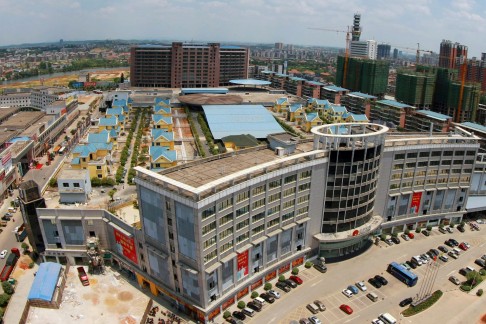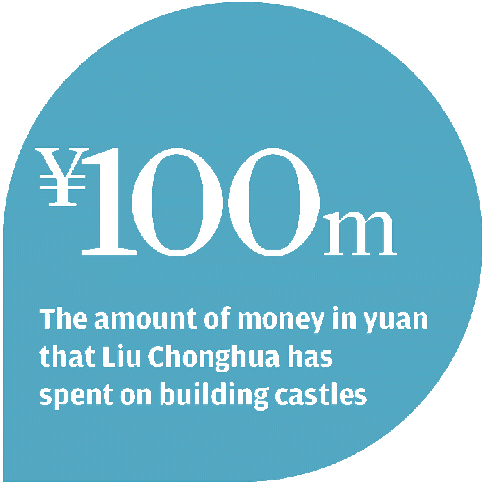
Flights of architectural fantasy in the China's cities of grey
Chongqing businessman defies government opposition to build castle-like buildings, one of several millionaires behind eccentric projects
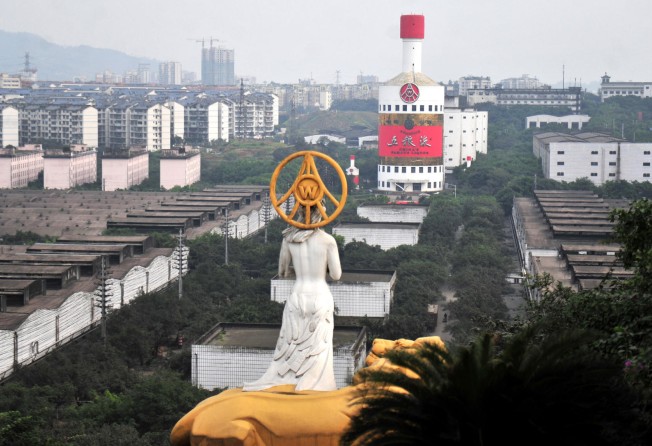
Liu Chonghua stands on a crenellated turret atop a castle - one of six he has built.

As the greatest urbanisation drive in history swells the mainland's cities in a sea of identical apartment blocks, Liu is creating unusual, some might say outlandish, architecture that harkens back to a time when kings ruled and knights jousted.
Liu made millions of dollars running a company that feeds the mainland's growing appetite for bread and cakes. He's poured that money into parapets and ramparts and plans to live in a grey stone structure that resembles Britain's Windsor Castle and towers above surrounding rice fields.
His other citadels include a red-brick fairytale edifice where spires soar so grandly it could be the setting for Disney's Aladdin . The baker has also built an edifice of white confection, with candy-coloured towers reminiscent of Neuschwanstein, the hilltop fantasy built by Bavaria's 19th century "Mad" King Ludwig II.
The mainland's building boom is unprecedented in human history. The urban population has grown by more than 20 million people a year for more than a decade. The rush to house them all has given rise to hectares of utilitarian development.
Liu says that in his own way, he's fighting against the ubiquitous apartment houses. With that desire, he's become one of several mainland millionaires channelling newfound wealth into eccentric projects. One businessman has built imitations of both the Great Pyramid of Giza and the Palace of Versailles on his corporate campus.
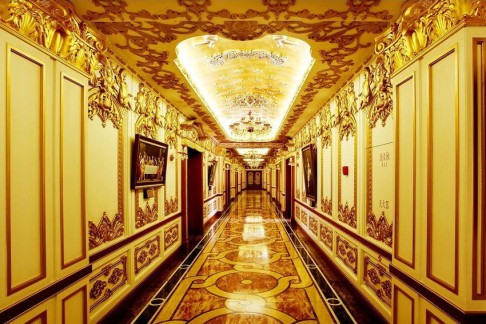
"China needs castles, because it needs a more pluralistic culture," he says. "A city needs people who have dreams, to help society develop."
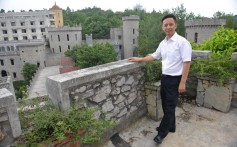
Tom Miller, author of China's Urban Billion: The Story Behind the Biggest Migration in Human History, says that most Chinese cities are ugly, grey and utilitarian. "If you were parachuted in blind to almost any Chinese city, and you were looking around, you would have the same uniform buildings," says Miller, a former Beijing correspondent for the South China Morning Post. "When you are building at that kind of enormous speed, you don't worry about aesthetic niceties," he added.
Daring new projects from mainland developers often employ star foreign architects, and state-led efforts to renovate historical districts suggest a shift in attitudes. "People are realising that it's not good for everything to look identical, and are realising tourists will pay to see something different," Miller says.
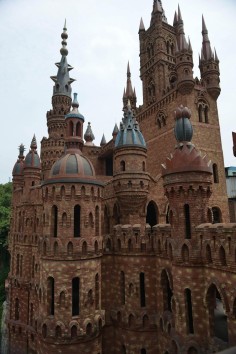
He was sent to dig ditches during the political upheavals of the 1960s. Today his bakery company manufactures pastries, biscuits and a product described as a "dreamlike cake".
After making his fortune, he says he "wanted to turn the castles of my dreams into something real."
His designs were inspired by buildings in Munich and the chateaus of France's Loire Valley. He says maverick Spanish architect Antoni Gaudi, designer of Barcelona's Sagrada Familia cathedral, was an inspiration.
One of his construction workers, former soldier Ma Wenneng, tinkered with a fountain on a balcony. He says it's not difficult to recreate foreign designs on Chinese soil.
"Actually, European castles are really easy to build," he says. "The boss has a book of castle pictures in his office and we use that as a reference."
Liu says he spent more than 100 million yuan (HK$126 million), some borrowed from friends, to construct the buildings. He invites visitors to take a look, free of charge.
"I think the castles are very romantic," says a woman who gave her surname as Gao. She was posing for pictures in a white wedding dress outside a castle beside the headquarters of Liu's firm.
Some local officials feel differently. Two years ago the government brought a section of Liu's dream crashing down. The city dispatched a crew with heavy machinery to knock down a 16- metre-high castle gate.
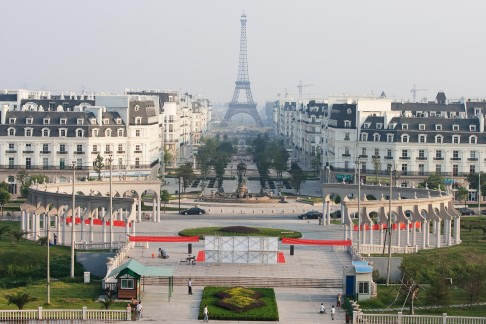
But Liu is undaunted. He has ambitions for more grand buildings.
"I have achieved half of my dream," he says. "The next part is building better and more awesome castles, the kind that will astound people."
Staring wistfully into the distance, he points towards a forested mound. "I will build another, bigger castle on top of that hill," he says.
